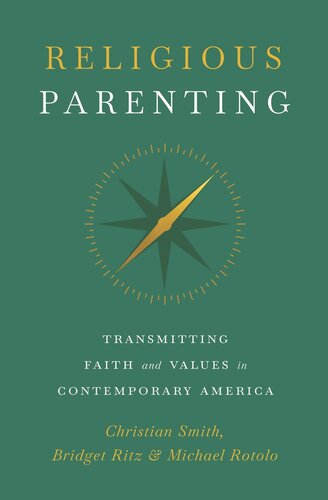

Most ebook files are in PDF format, so you can easily read them using various software such as Foxit Reader or directly on the Google Chrome browser.
Some ebook files are released by publishers in other formats such as .awz, .mobi, .epub, .fb2, etc. You may need to install specific software to read these formats on mobile/PC, such as Calibre.
Please read the tutorial at this link: https://ebookbell.com/faq
We offer FREE conversion to the popular formats you request; however, this may take some time. Therefore, right after payment, please email us, and we will try to provide the service as quickly as possible.
For some exceptional file formats or broken links (if any), please refrain from opening any disputes. Instead, email us first, and we will try to assist within a maximum of 6 hours.
EbookBell Team

4.1
50 reviewsDrawing from more than two hundred interviews with American parents from diverse backgrounds, Smith and his team explore how religious parents in the United States approach the task of passing on their religious faith and practice to their children.
How parents approach the task of passing on religious faith and practice to their children
How do American parents pass their religion on to their children? At a time of overall decline of traditional religion and an increased interest in personal “spirituality,” Religious Parenting investigates the ways that parents transmit religious beliefs, values, and practices to their kids. We know that parents are the most important influence on their children’s religious lives, yet parents have been virtually ignored in previous work on religious socialization. Renowned religion scholar Christian Smith and his collaborators Bridget Ritz and Michael Rotolo explore American parents’ strategies, experiences, beliefs, and anxieties regarding religious transmission through hundreds of in-depth interviews that span religious traditions, social classes, and family types all around the country.
Throughout we hear the voices of evangelical, Catholic, Mormon, mainline and black Protestant, Jewish, Muslim, Hindu, and Buddhist parents and discover that, despite massive diversity, American parents share a nearly identical approach to socializing their children religiously. For almost all, religion is important for the foundation it provides for becoming one’s best self on life’s difficult journey. Religion is primarily a resource for navigating the challenges of this life, not preparing for an afterlife. Parents view it as their job, not religious professionals’, to ground their children in life-enhancing religious values that provide resilience, morality, and a sense of purpose. Challenging longstanding sociological and anthropological assumptions about culture, the authors demonstrate that parents of highly dissimilar backgrounds share the same “cultural models” when passing on religion to their children.
Taking an extensive look into questions of religious practice and childrearing, Religious Parenting uncovers parents’ real-life challenges while breaking innovative theoretical ground.